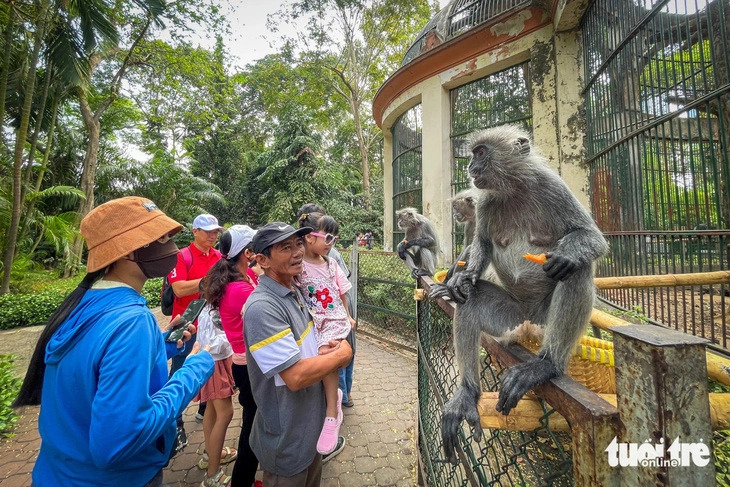The recent growing public concern over the potential closure of the Saigon Zoo and Botanical Gardens, located in downtown Ho Chi Minh City, due to US$34-million land rent arrears has highlighted the need for better land use policies and timely solutions to avoid similar crises in the years to come.
As the 160-year-old zoo is a cherished destination for generations of Ho Chi Minh City residents and visitors across the country, the public was recently shocked to learn that the accrued land rent totaling VND864 billion ($34 million) put the zoo at risk of shutdown.
Many of them questioned why a zoo dedicated to preserving plants and animals and engaging in modest business activities would face such an enormous financial burden.
However, under a 2014 lease agreement with the Ho Chi Minh City administration, the taxman calculated the rent in line with the law.
For the rent stabilization period from 2014 to 2019, the municipal Department of Natural Resources and Environment and relevant agencies had not finalized the rental rate for the zoo.
Afterward, the annual rent was set at more than VND163 billion ($6.4 million) for the zoo’s 158,117 square meters.
The rent rate, however, is designed for public land used for commercial purposes, which raised questions about its applicability to the zoo.
In reality, the zoo uses only 5,590 square meters, or 3.5 percent of its total area, for business operations. These include ticket counters and small food and drink kiosks, catering to basic visitor needs.
The vast majority of the zoo’s land is dedicated to maintaining and preserving over 4,500 species of plants and animals, including rare or endangered ones.
The zoo’s limited commercial activity makes the hefty rent bill seem unreasonable.
This issue shows shortcomings from both the city and the zoo’s operator.
The land lease agreement from 2014 included rent obligations based on the law, but the potential challenges of applying such terms to the zoo’s operations were not fully considered at the time.
In response to the issue, authorities have pledged to resolve it, emphasizing the importance of preserving the zoo.
On the sidelines of a People’s Council meeting on Wednesday morning, chairman of the People’s Committee Phan Van Mai told local media that he had tasked the Department of Natural Resources and Environment with reviewing the decision to lease and hand over land to the Saigon Zoo and Botanical Gardens.
Only the land area used for business purposes is subject to rent, while appropriate solutions should be worked out for the land used for conservation purposes, probably a land rent exemption.
Authorities’ commitment reflects the wishes of local residents and underscores the zoo’s significance as a historical, cultural, and ecological treasure.
The case linked to the potential shutdown of the zoo has underlined the need for better land use policies and prompt action to ensure similar cases do not arise in the upcoming time.
Founded in 1864, the Saigon Zoo and Botanical Gardens is one of the world's eight oldest zoos.
It houses over 2,000 animals of 135 species and more than 2,500 plants.
In the first half of this year, Saigon Zoo and Botanical Gardens Co. Ltd. generated nearly VND73 billion ($2.9 million) in revenue, down 10 percent year on year, and VND4.68 billion ($184,325) in net profit, according to its audited financial report.
Its total asset value reached nearly VND860 billion ($33.9 million).
The company also has over VND5.3 billion ($208,467) in cash and VND63.4 billion ($2.5 million) as deposits at banks.
Like us on Facebook or follow us on X to get the latest news about Vietnam!


















































